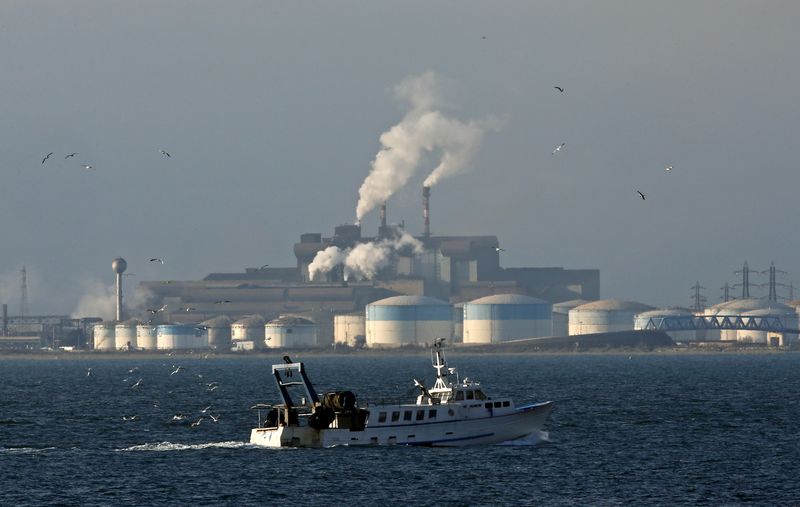By Shariq Khan
BENGALURU (Reuters) -Oil prices rose a dollar a barrel on Friday as investors worried about potential supply disruptions in the Middle East, one of the world’s top-producing regions, after signs of escalation of the Israel-Palestinians crisis.
futures rose $1.00, or 1.1%, to $93.26 a barrel by 11:24 a.m. EDT (1524 GMT). U.S. West Texas Intermediate crude was also up by a dollar to $90.37 a barrel. The front-month November WTI contract expires on Friday.
The more active December WTI contract was up 90 cents at $89.27 a barrel.
Both front-month contracts were headed for a second weekly gain on heightened fears of the Middle East conflict spreading.
“The Middle East remains a big focus of the market because of fears of a region-wide conflict that would likely involve a disruption of oil supplies,” said John Kilduff, a partner at New York-based Again Capital.
Supply disruptions “may be a remote possibility” now, Kilduff added, but “the market cannot ignore it – especially heading into the weekend when things could change rapidly and there will be no trading.”
On Thursday, Israeli Defence Minister Yoav Gallant told troops at the Gaza border they would soon see the Palestinian enclave “from inside”, suggesting an expected ground invasion could be near. Also on Thursday, the Pentagon said the U.S. had intercepted missiles fired from Yemen toward Israel.
Oil prices are also supported by forecasts of a tightening market in the fourth quarter after top producers Saudi Arabia and Russia extended supply cuts to year end and as the U.S. has seen crude inventories decline.
Washington’s renewed plans to refill the U.S. Strategic Petroleum Reserve have been slightly supportive for oil prices, although the Department of Energy’s bid to buy oil at $79 a barrel or lower is unlikely to attract strong interest at current market prices, analysts said.
“When you try to put a bid basically $20 below the market, I wouldn’t expect a fast execution of that trade,” said Phil Flynn, analyst at Price Futures Group.
Separately, a temporary lifting of U.S. oil sanctions on OPEC member Venezuela is unlikely to require any policy changes by the OPEC+ producer group for now, as a recovery in production is likely to be gradual, OPEC+ sources told Reuters.
“Venezuelan oil production will not be a significant factor in shaping the global oil balance in the foreseeable future,” Tamas Varga of oil broker PVM wrote in a note.
Read the full article here
